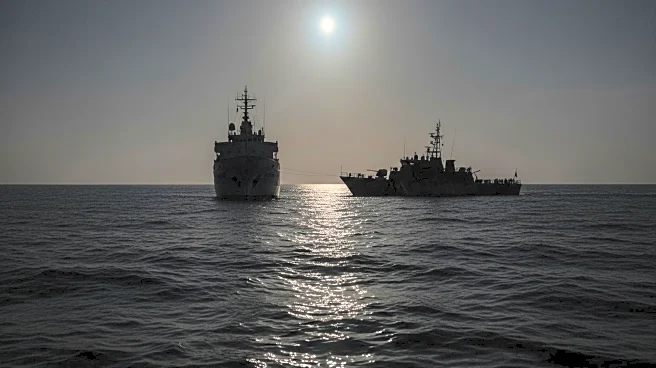What's Happening?
Israeli forces intercepted a flotilla attempting to break the blockade of Gaza, detaining hundreds of activists, including Greta Thunberg. The flotilla, part of the Global Sumud Flotilla, aimed to deliver humanitarian aid to Gaza amidst a humanitarian crisis. The interception has been labeled by organizers as an 'illegal attack' on humanitarians, while Israel claims the activists were more interested in provocation than aid. The flotilla consisted of over 500 participants from various countries, carrying essential supplies like food, water, and medicine.
Why It's Important?
The interception of the flotilla is significant as it highlights the ongoing humanitarian crisis in Gaza and the international community's response to it. The involvement of prominent activists like Greta Thunberg brings global attention to the situation, potentially influencing international diplomatic and public opinion. The event also raises questions about the legality of Israel's blockade and the rights of humanitarian missions under international law. The differing narratives from Israel and the flotilla organizers reflect the broader geopolitical tensions and the challenges of addressing humanitarian needs in conflict zones.
What's Next?
Following the interception, the activists are expected to be deported, and the boats towed to an Israeli port. The incident may lead to diplomatic discussions and potential protests from countries whose citizens were involved. The flotilla organizers and supporting governments may seek legal or diplomatic avenues to challenge the interception. The broader implications for the Israeli-Palestinian conflict and international humanitarian efforts in Gaza remain to be seen, as stakeholders assess the impact of this high-profile interception.
Beyond the Headlines
The interception raises deeper questions about the balance between security and humanitarian needs in conflict zones. It also highlights the role of international activism in drawing attention to protracted conflicts and humanitarian crises. The legal debates surrounding the blockade and the rights of humanitarian missions could influence future international maritime law interpretations and enforcement.










